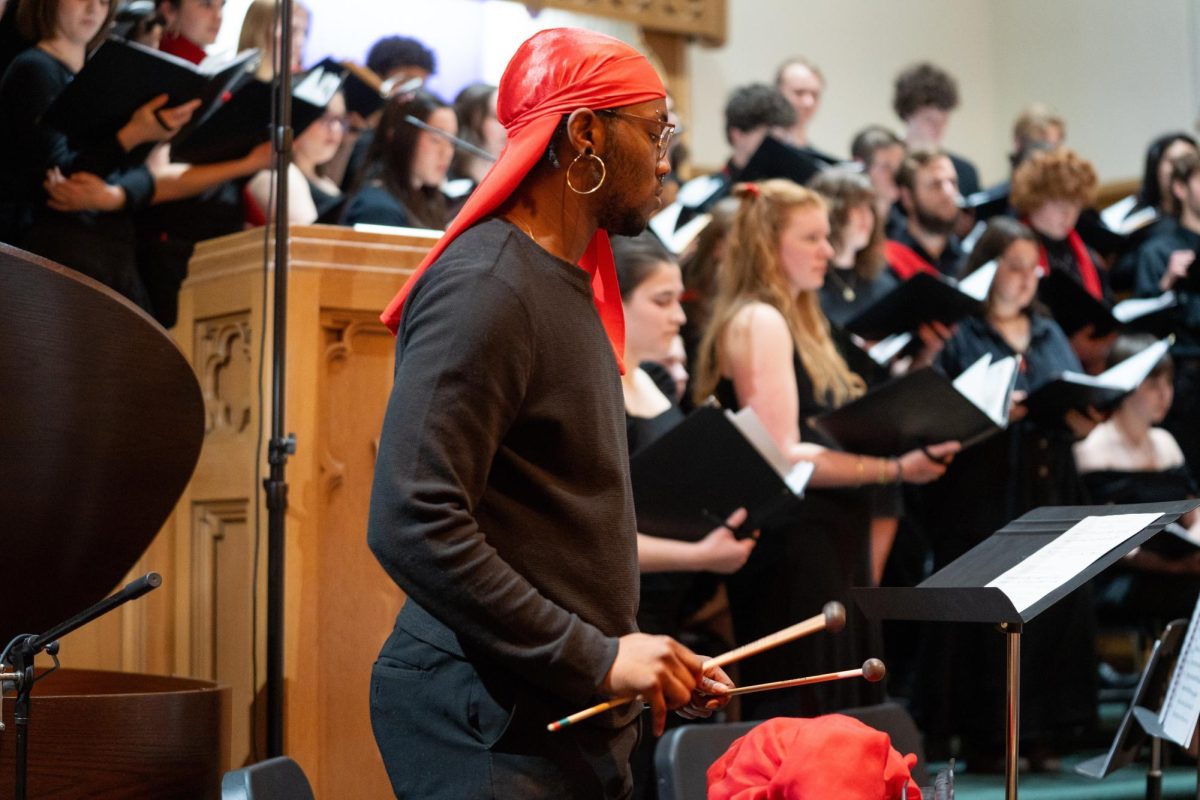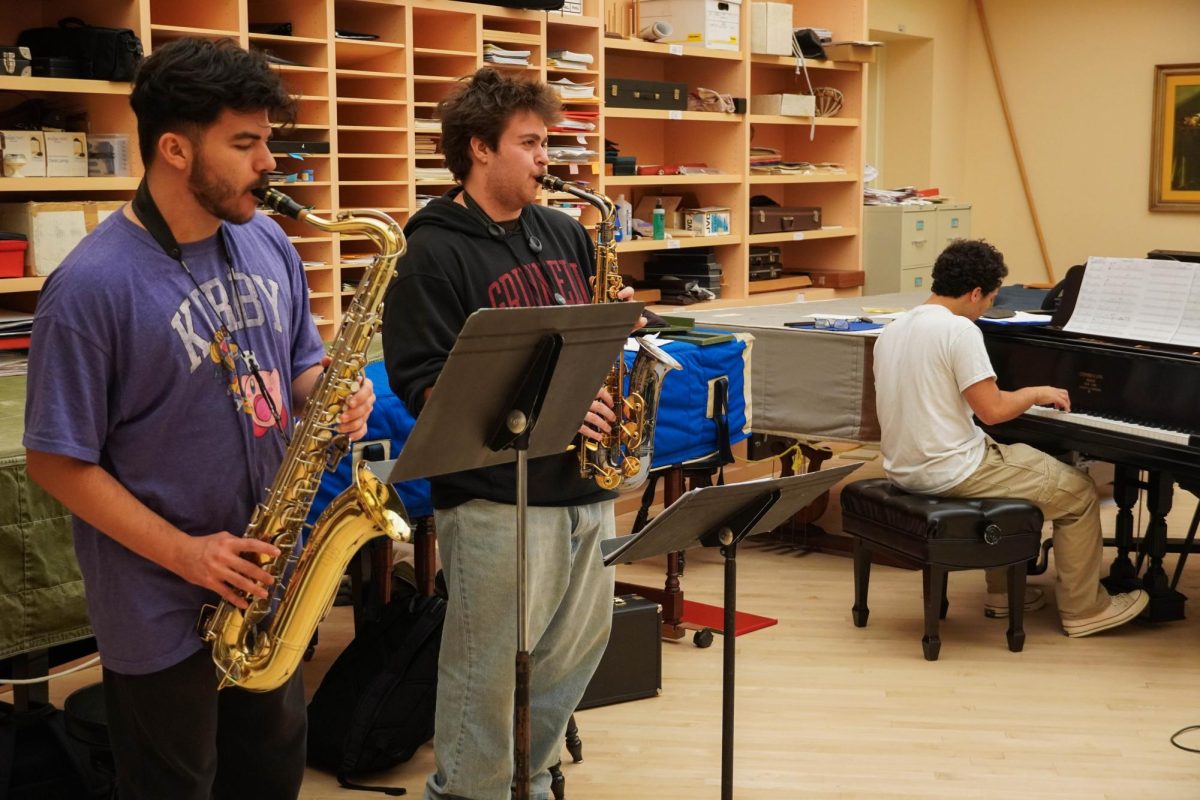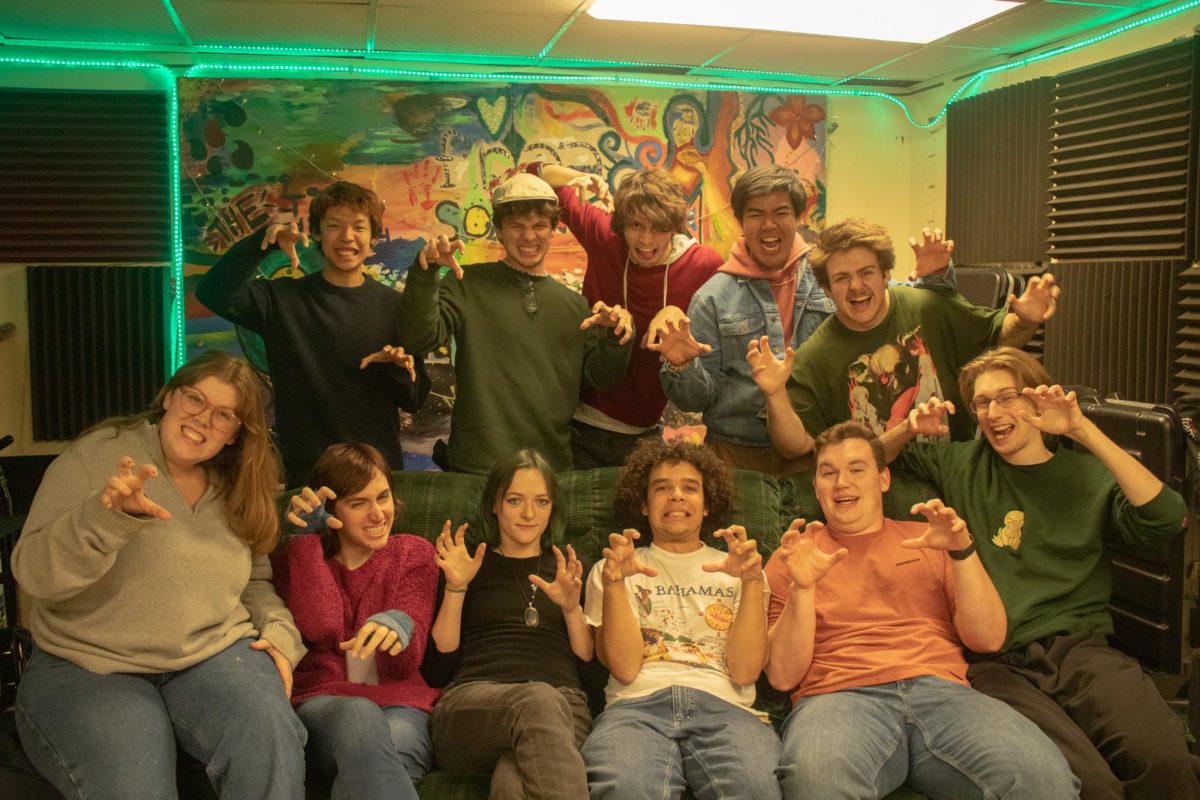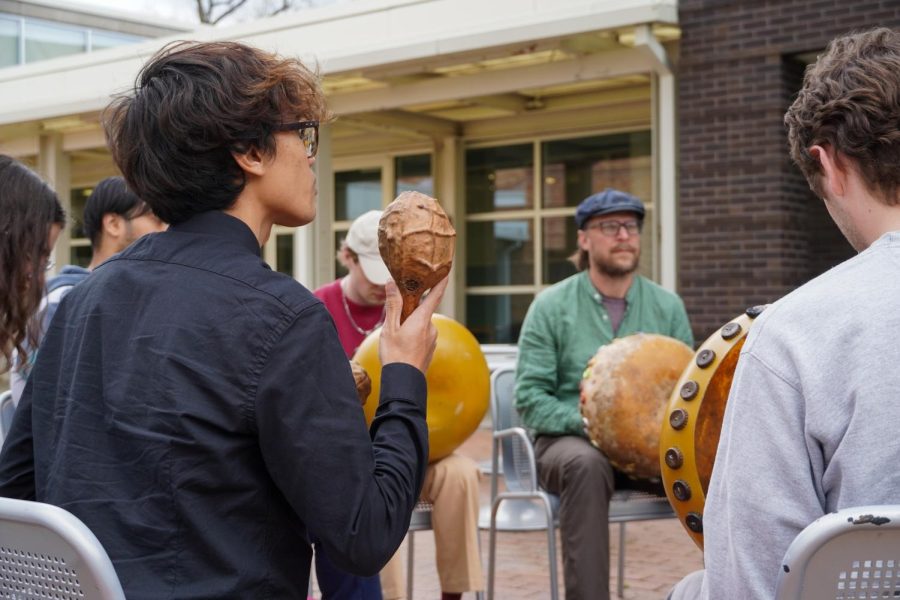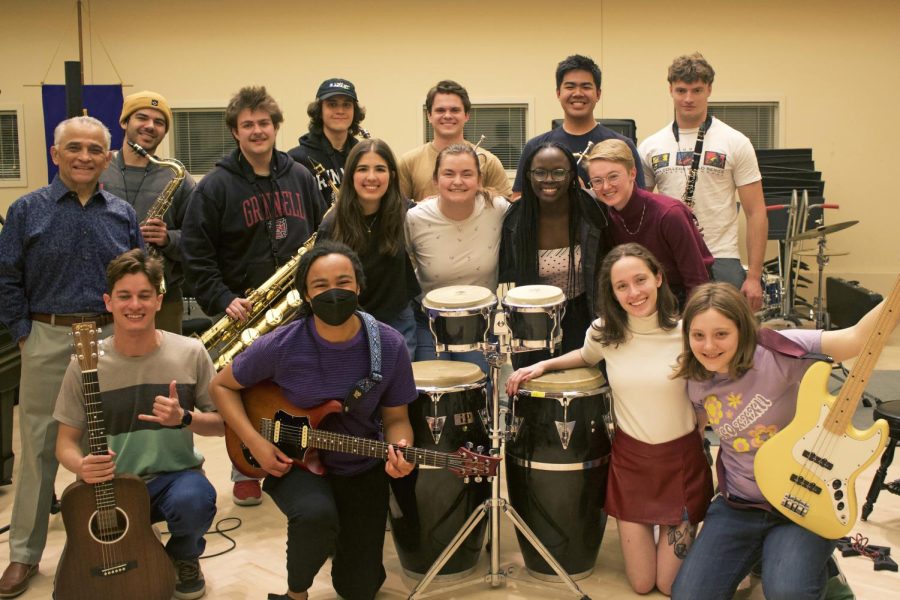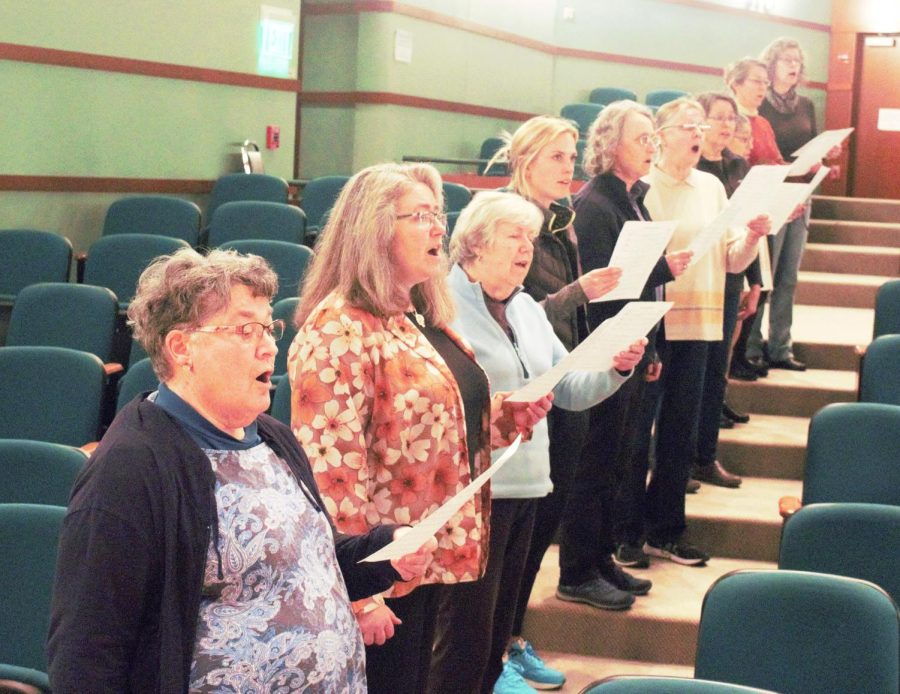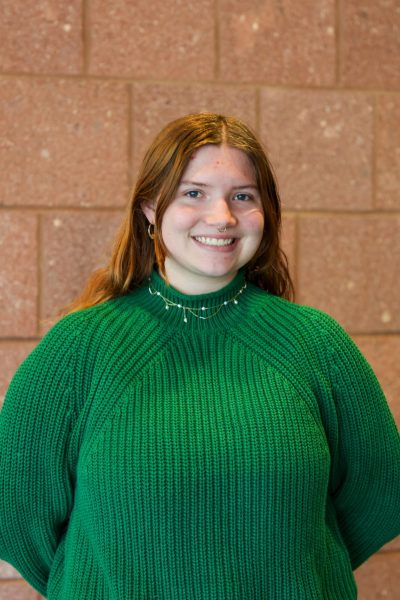“Let it ring” serves as the guiding principle for members of the Balinese Sound Ensemble to come together in the spirit of communal composition and collective musical growth.
For the past two years, Putu Tangkas Adi Hiranmayena, assistant professor of music, has directed the ensemble, providing members of the Grinnell community an opportunity to explore different traditions of gamelan music in a supportive learning environment.
Gamelan has been established in the U.S. for decades now. In the early 1980s, Professor Emeritus Roger Vetter and his wife, Valerie Mau Vetter, brought Javanese gamelan music to the College, co-directing a Javanese Music and Dance ensemble.
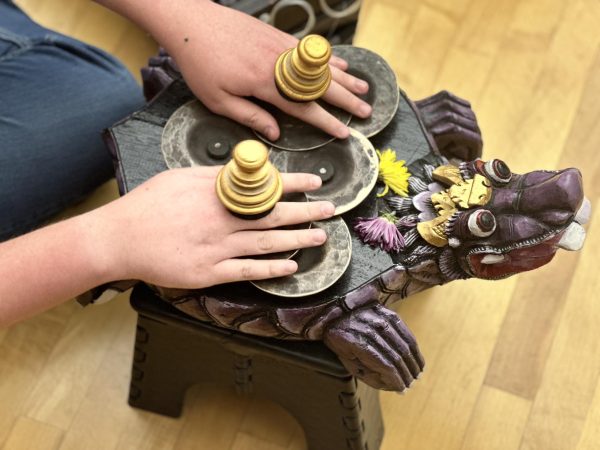
Upon Hiranmayena’s arrival in Grinnell, he said he knew he wanted to accommodate various musical sensibilities and students with a relatively unorthodox experience, blending portions of five different kinds of gamelan.
The group incorporates wind and percussion instruments. Amongst them are the ceng ceng, a type of cymbal, and suling, an arrangement of bamboo flutes of varying sizes.
“I don’t teach repertoire in our classes, meaning I don’t regurgitate traditional pieces. We push for communal composition where I present particular frameworks, and then we, as a group, create together, negotiating our time and creativity,” he said.
Joey Fisk `24 has been a member of the ensemble for three semesters. He said that the cultural competence aspect of the ensemble in combination with the de-stressor of making music has kept him coming back for more.
Karima Rostom `26 and Charles Wade `26 have found the ensemble helpful in branching outside of their music comfort zones. Rostom plays the classical flute while Wade plays piano. “It’s reminded me how much I love learning new things and how powerful music can be in a communal sense,” Rostom said. Wade said they enjoy the low-pressure environment where they can start from scratch without fear of judgment.
Balinese dance plays an essential role in gamelan music. Dewa Ayu Eka Putri, lecturer of Balinese dance, often practices with the group, bringing her background in dance into the “negotiation of creativity” in the classroom.
Members of her spring Balinese class will perform alongside the ensemble in a public sharing of their semester’s work. The groups practice together during the rehearsal process, playing with the relationship between rhythm and movement. Putri said that gamelan is all about trust between the musician and the dancer and maintaining a sense of play within the circle.
“I want them to experience something outside of their comfort zones, exploring a new culture, but doing so in a small community where they feel safe to enjoy what they are doing onstage,” she said.
Erica McClure`24, current member of Putri’s class, said that she is looking forward to the hands-on aspect of the class which involves crafting traditional headdresses for their costumes.
Haley Belsher `24 joined the music ensemble after previously taking Putri’s dance class. “Being here forces me to be imperfect in front of people for two hours. I have to gain competency in front of people, and that scares me so much, but it’s so good for me,” she said.
Putri and Hiranmayena said they agree that the process of creation is the most important part of their work. Putri said that the goal of production is not the presentation itself, but rather the communal creation and exploration of ideas and dancing from the heart.
During Hiranmayena’s and Putri’s second semester at Grinnell, the ensemble held a naming ceremony where members of the Meskwaki nation joined them in a neo-animist event that commemorated the importance of space to the community they have built on this land. They named the group “Gamelan Pawisik,” reflecting the Iowa origins of Poweshiek directly.
The title of this semester’s public sharing, “Akar Arum,” roughly translates to “Aromatic Roots”, an intentional summoning of the process that students have engaged in these past few months.
Andrew Fuller `24 said he is excited to share what the group has composed this semester. “Normally, performing can be a source of nervousness where there’s a pressure to play a certain way. However, I don’t feel like anything’s going to be very different from when it’s just us grooving in the classroom to performing on an actual stage.”
“Akar Arum” will be held on Wednesday, May 8 at 7 p.m. in Flanagan Theatre.



















































